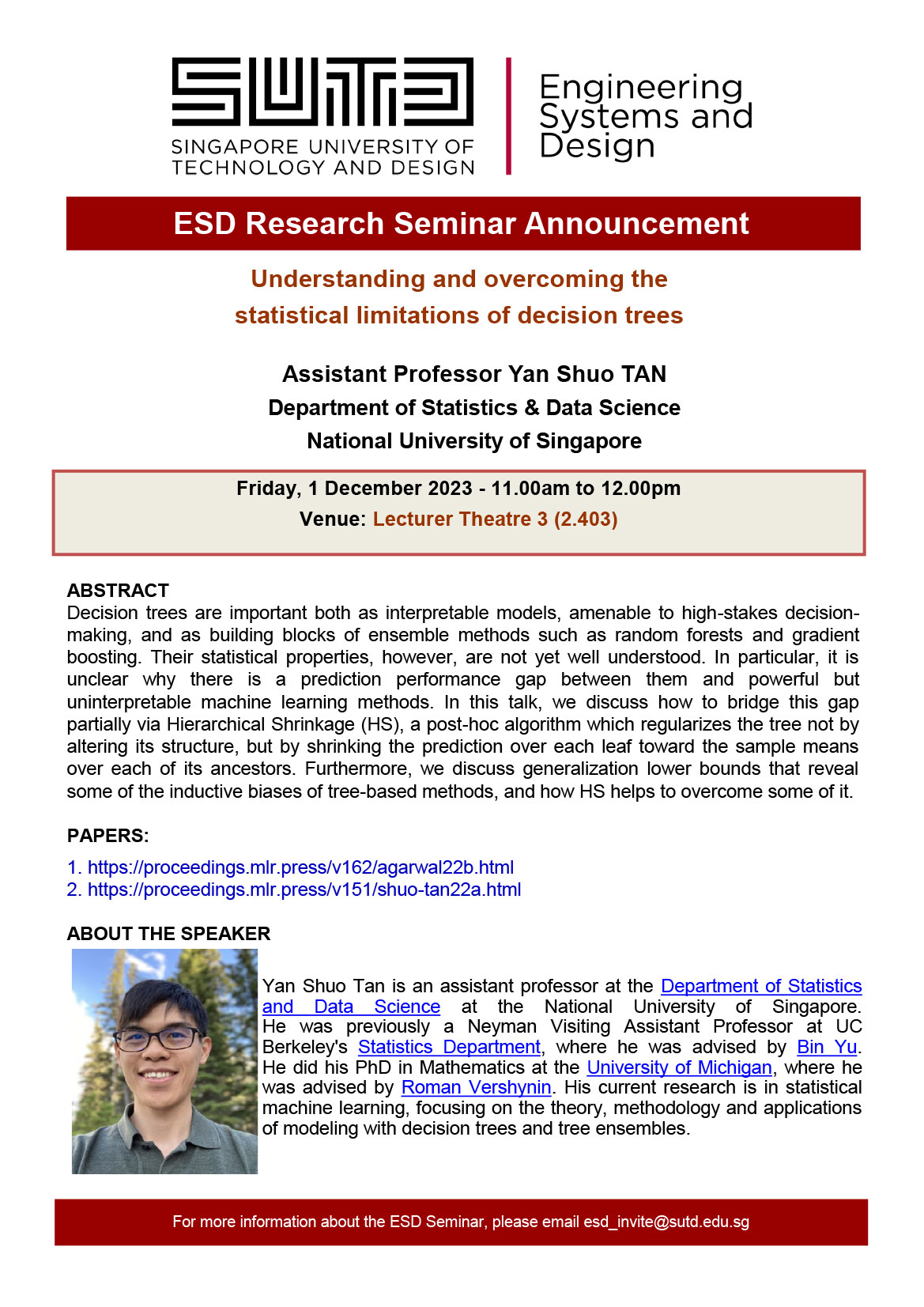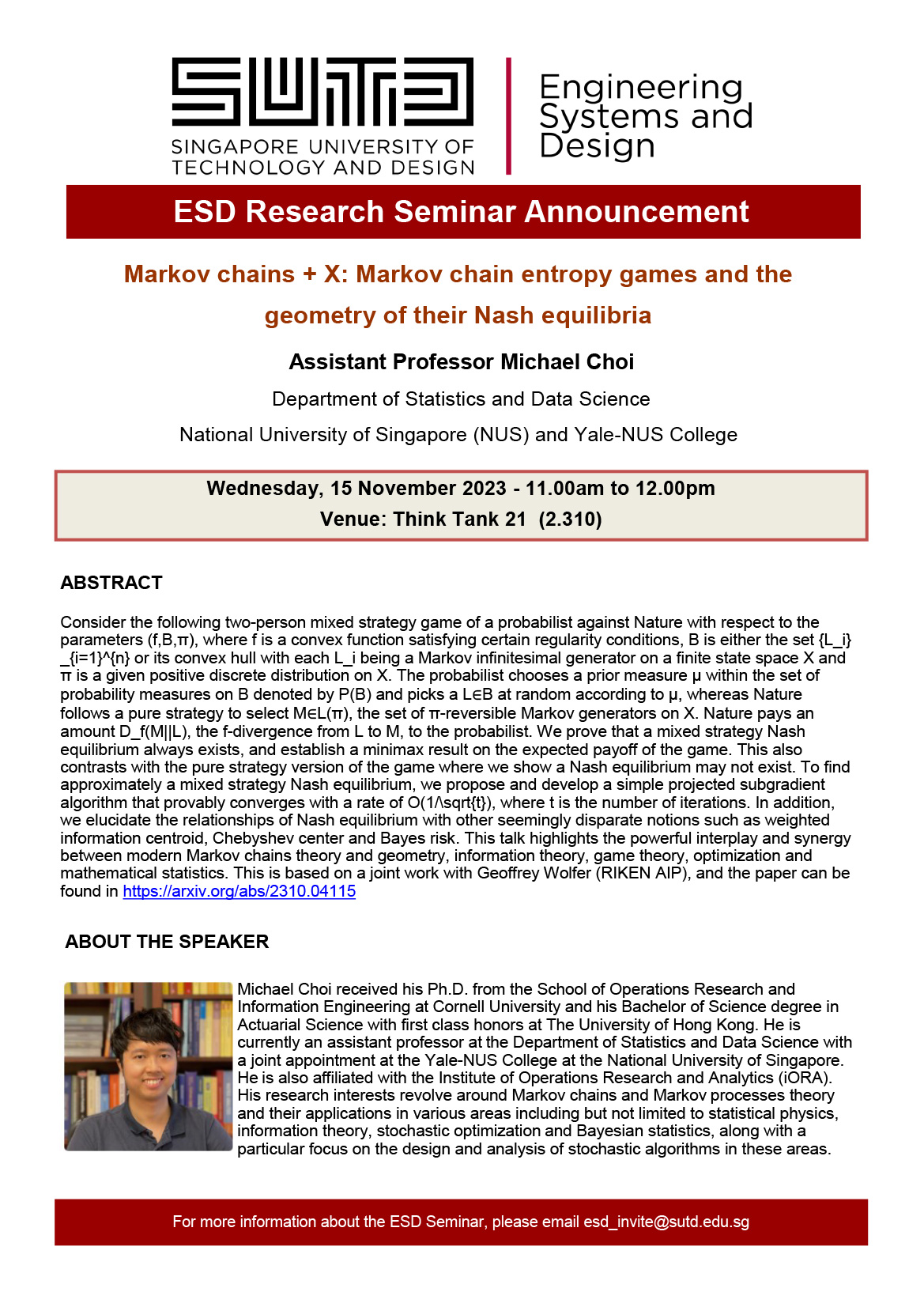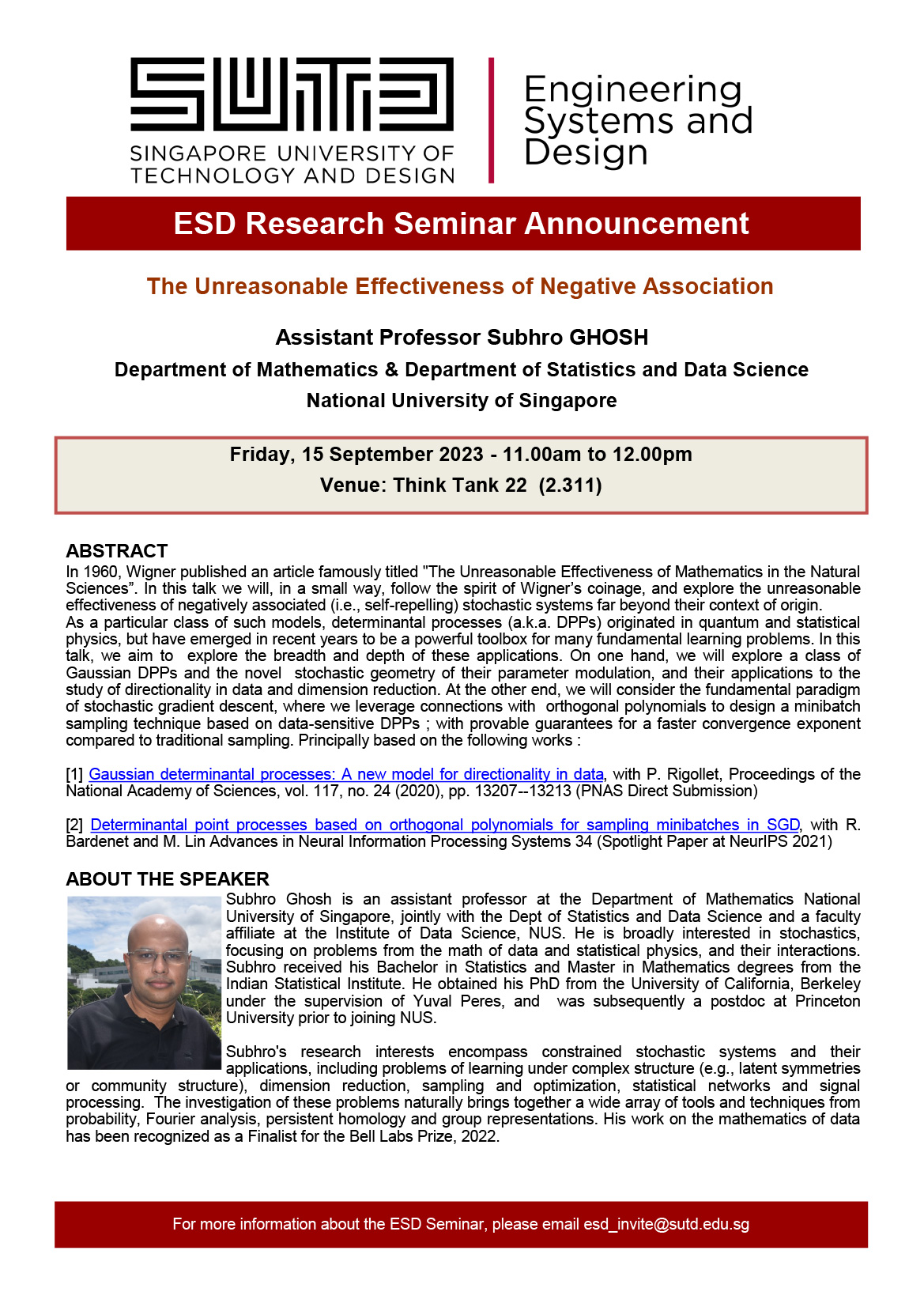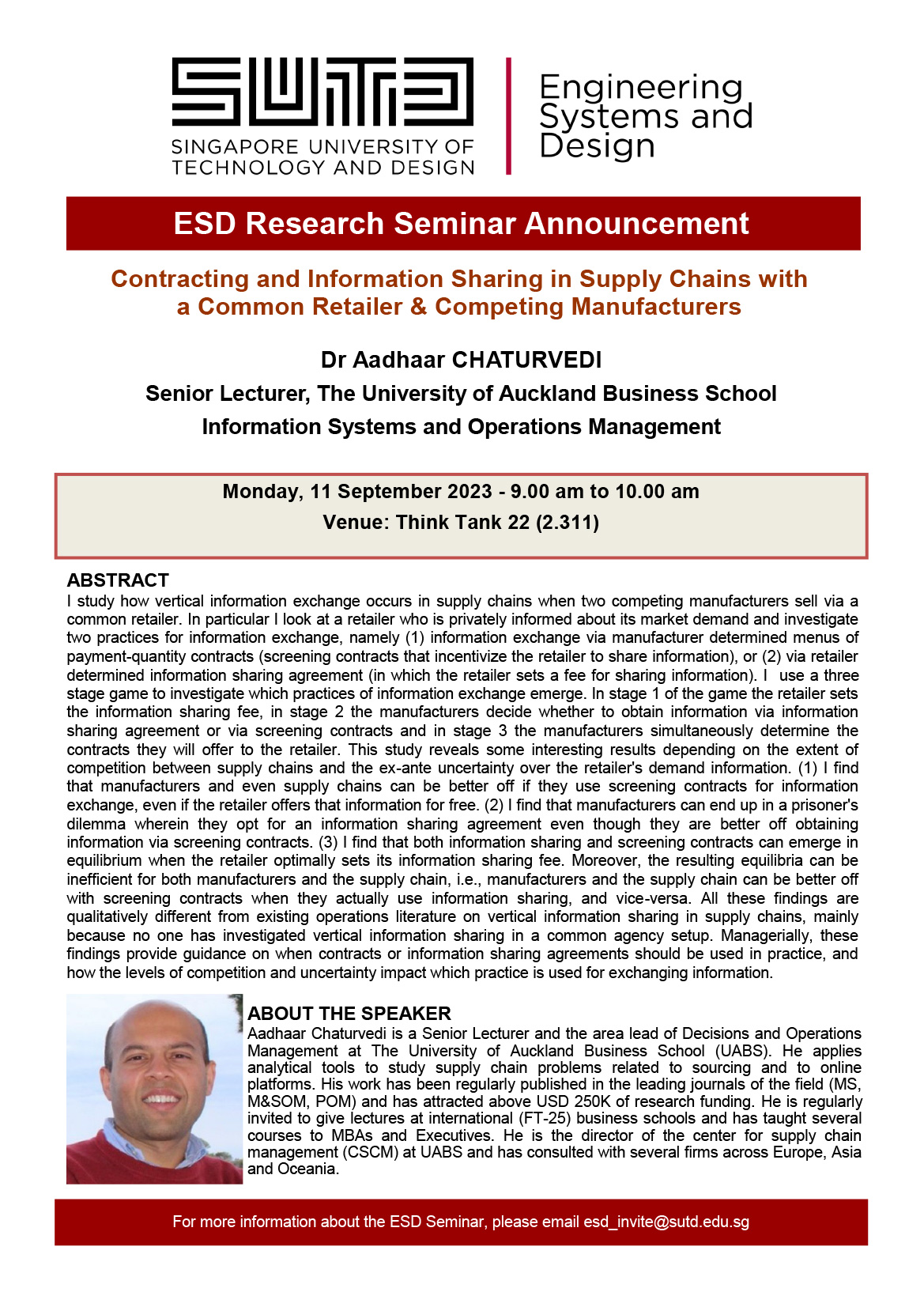Events
Feng Ling (A*STAR) – Optimal Machine Intelligence at the Edge of Chaos and Initial Applications to Model Training
Feng Ling (A*STAR) – Optimal Machine Intelligence at the Edge of Chaos and Initial Applications to Model Training
Limited-Trust in Diffusion of Competing Alternatives Over Social Networks & Apurv Shukla (Texas A&M University) – Differentially Private Online Resource Allocation
Limited-Trust in Diffusion of Competing Alternatives Over Social Networks & Apurv Shukla (Texas A&M University) – Differentially Private Online Resource Allocation

Yan Shuo Tan (National University of Singapore) – Understanding and Overcoming the Statistical Limitations of Decision Trees
Yan Shuo Tan (National University of Singapore) – Understanding and Overcoming the Statistical Limitations of Decision Trees


Anish Agarwal (Columbia University) – Causal Tensor Completion
Anish Agarwal (Columbia University) – Causal Tensor Completion


Michael Choi (National University of Singapore) – Markov Chains + X: Markov Chain Entropy Games and the Geometry of their Nash Equilibria
Michael Choi (National University of Singapore) – Markov Chains + X: Markov Chain Entropy Games and the Geometry of their Nash Equilibria


Ariel Neufeld (Nanyang Technological University) – Markov Decision Processes under Model Uncertainty
Ariel Neufeld (Nanyang Technological University) – Markov Decision Processes under Model Uncertainty


Subhro Ghosh (National University of Singapore) – The Unreasonable Effectiveness of Negative Association
Subhro Ghosh (National University of Singapore) – The Unreasonable Effectiveness of Negative Association


Aadhaar Chaturvedi (The University of Auckland Business School) – Contracting and Information Sharing in Supply Chains with a Common Retailer & Competing Manufacturers – Engineering Systems and Design (ESD)
Aadhaar Chaturvedi (The University of Auckland Business School) – Contracting and Information Sharing in Supply Chains with a Common Retailer & Competing Manufacturers – Engineering Systems and Design (ESD)


Aadhaar Chaturvedi (The University of Auckland Business School) – Contracting and Information Sharing in Supply Chains with a Common Retailer & Competing Manufacturers
Aadhaar Chaturvedi (The University of Auckland Business School) – Contracting and Information Sharing in Supply Chains with a Common Retailer & Competing Manufacturers


WiOpt 2023
WiOpt 2023

